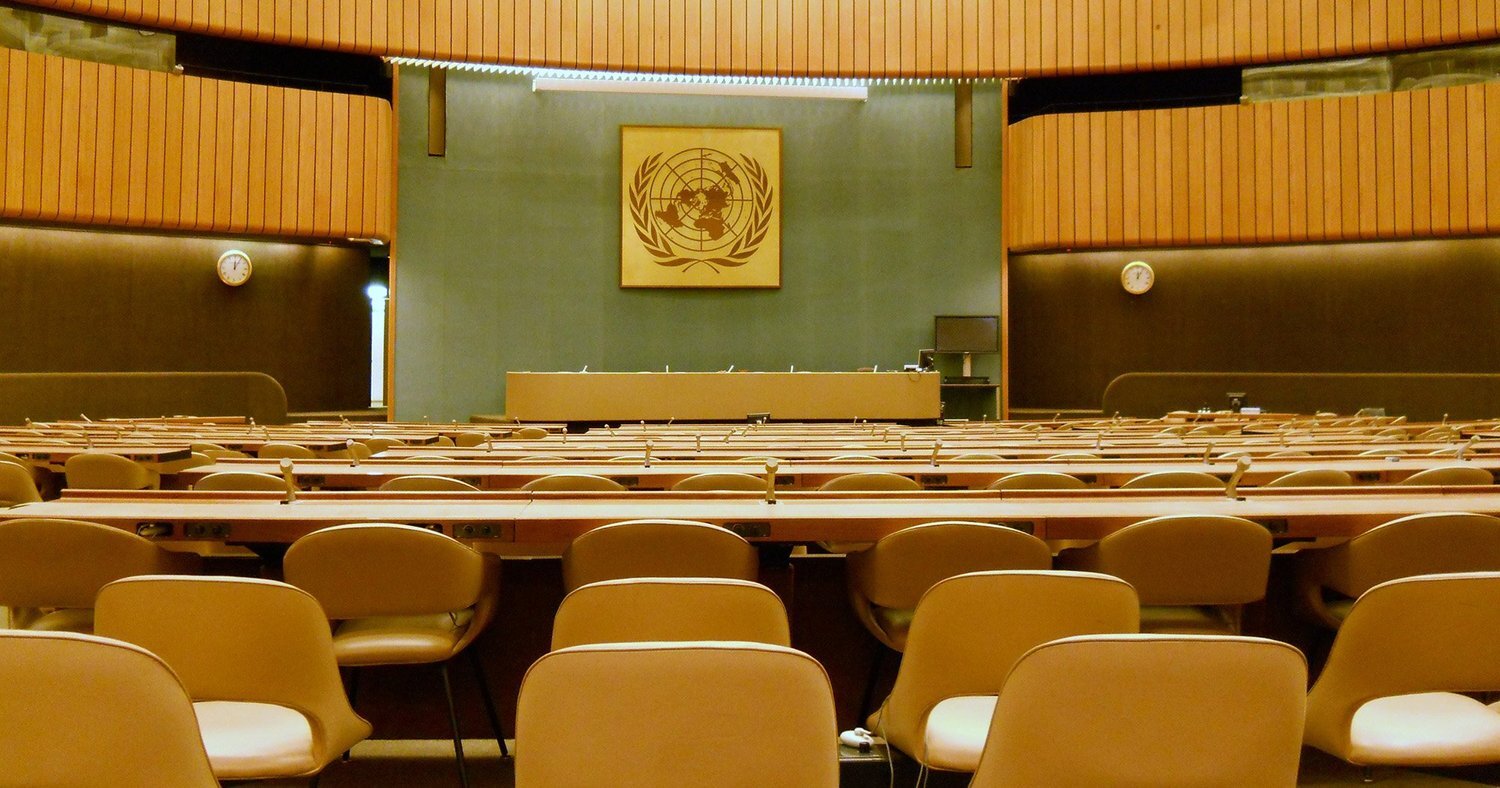Inside the guarded bubble of the United Nations headquarters in Geneva, there are signs of a problem. Next to the security carousels, a large sign, replicated all over the hallways, says: “In response to the ongoing UN budget crisis, we have had to reduce operating hours. We apologize for the inconvenience.” During the past two years, corridors and meeting rooms of the Palais des Nations have been occasionally kept in the dark, central heating and elevators cut to save on the very inflated Swiss electricity bills. Back in December 2023, the UN’s liquidity crisis got so dire that the Palais was shut down for three whole weeks. Ahead of a security meeting, a source told me a Russian delegate once joked in front of a dead elevator that they should turn the power off for Americans but not for him: His country had already paid its yearly contribution to the UN.
The much delayed, years-long renovation of the UN buildings, which has overrun its budget by as much as 118 million CHF ($144 million), adds a layer of uncertainty to the otherwise neatly sophisticated decor. Construction gear lies in the grass. A sign about Building E, the building where the main conference rooms are, states, nostalgically, that it was once the world’s largest glass window. (The world’s largest glass window is now in China, according to the Guinness Book of World Records). Behind the rain-soaked foliage of the gardens, a peacock wails. Peacocks were offered as a gift to the UN by India’s permanent mission in the 1980s and, as a result, the UN gardens are full of them. They are still being fed by Geneva’s municipal staff.
The World Health Assembly brings together the representatives of 194 states every year in May. It is one of the year’s highlights for the World Health Organization (WHO), the UN agency dedicated to health. Inside Building E, the atmosphere is busy, focused, even expectant. It is May 20, the second day of the assembly, and a much anticipated-session is taking place in Room XX — also known as the Human Rights and Alliance of Civilizations Room. Member states are discussing whether or not they will approve measures proposed by the WHO’s director, Tedros Adhanom Ghebreyesus, to shrink down its core budget for 2026-27 to $4.2 billion from $5.3 billion and to increase membership fees by 20 percent to try to fill the anticipated budget gap of more than $1.7 billion due in part to a lack of U.S. contributions. The fees vary from one country to another, proportional to GDP. In a drastic move aimed at showing member states the reforms will not spare anyone, the WHO would reduce the number of its departments from 76 to 34 and, in June 2025, the senior leadership team in Geneva from 12 to seven directors. “The hard truth is that we need to reduce salary expenditures by 25 percent,” Ghebreyesus said at a member state briefing in late April.
Under the colorful stalactites dripping from the round ceiling of Room XX, a sculpture by Spanish artist Miquel Barceló representing multiculturalism and tolerance, the room was full and attentive. First Qatar, then Senegal, Togo, Spain, Colombia, Brazil, China, Lebanon and the U.K. spoke for three minutes each, the time allotted to member states. Member states unanimously agreed on the budget cuts.
The UN has been knee-deep in a liquidity crisis since 2023, with more member states paying late each year and some of them not paying at all, leaving the organization’s cash reserves exhausted. China regularly pays late. Afghanistan, Bolivia and Venezuela are in arrears. In 2023 only 82.3 percent of the budget had been collected, leaving $859 million in unpaid contributions. So when the United States, which owes the UN approximately $1.5 billion in arrears for the regular UN budget and about $1.2 billion for the peacekeeping budget, announced in January that it was cutting nearly all its foreign aid, the effect was devastating. The UN’s Office for the Coordination of Humanitarian Affairs (OCHA) scaled back its operations in nine countries. The World Food Program had to cut back food assistance for tens of millions of people. The UN’s Population Fund (UNFPA) terminated 48 grants, halting maternal health care, protection from violence and other lifesaving services for women and girls. In Afghanistan alone, the WHO closed 200 health facilities, meaning that 1.84 million people lost access to essential health care and vaccination programs. Twenty-seven countries in Africa and Asia face crippling breakdowns in tuberculosis diagnosis and treatment. The global network of 700 measles and rubella labs is at risk of collapse, malaria diagnoses and deliveries of bed nets and medicines have been delayed, the polio and mpox programs are unable to function as before.


